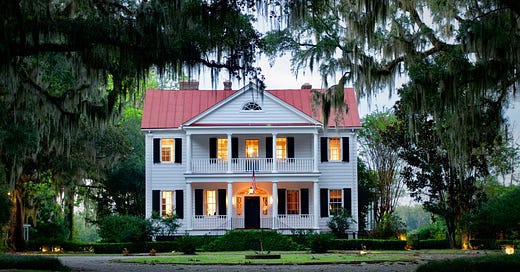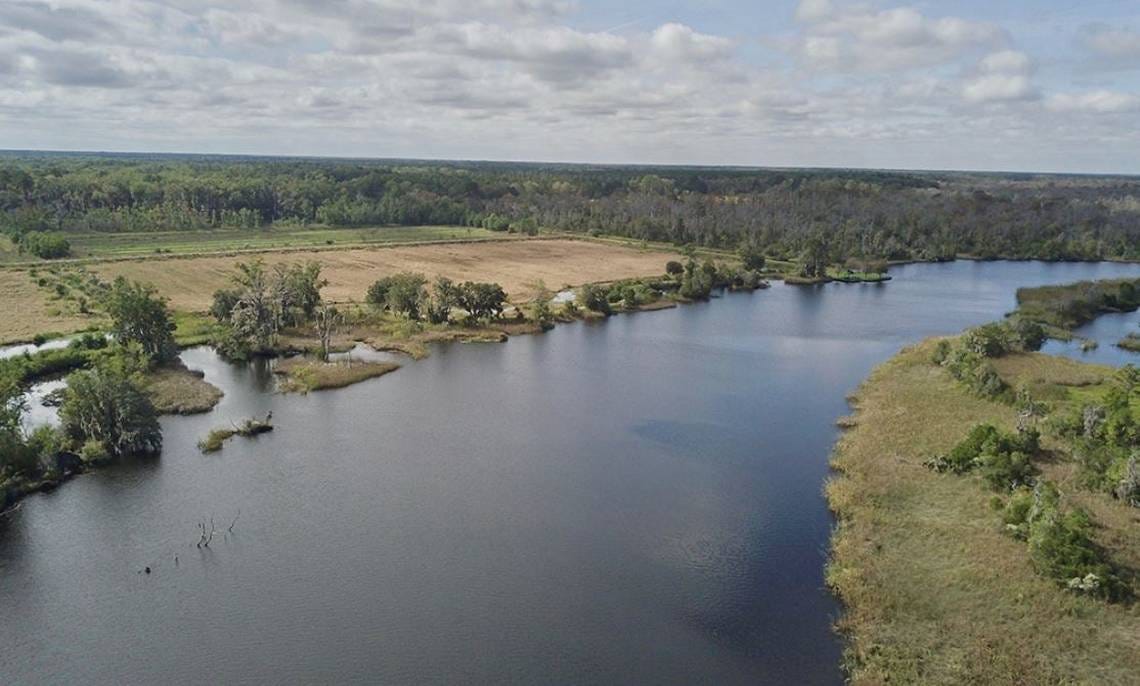An Invitation to Twickenham Plantation
The land of nearly forgotten places where once rice was king.
Take the long way home due west from Coastal Highway 17, just south of Charleston. Cross over the Combahee River through palmetto-studded live oak hammocks and dark water cypress swamps into the land of nearly forgotten places. Country churches, cinder black fish houses, and abandoned sharecropper shacks dot the fields. Time has tested the tin roofs, and the scorch of the South Carolina sun has weathered wooden barns and outbuildings. Some stand and teeter a bit, resting on stone foundations constructed many years ago.
Soon, the landscape opens into vast fields and an 18th-century working rice plantation. This is Twickenham, where boats would arrive to load up rice to take to Charleston. First, they had to offload ballast stones to maintain their draft on the river. At low tide, some of those ballast stones can still be seen today where the plantation’s rice loading canal enters the Combahee River. Rice is what made Charleston the wealthiest city in America during the 1800s.
In 1860, Thomas Middleton Hanckel, a Charleston attorney, owned Twickenham and had 127 slaves. He was a signer of the South Carolina Ordinance of Secession that led to the Civil War. The plantation produced 553,500 pounds of rice that year.
Hundreds of acres are considered prime for waterfowl hunting along miles of the Combahee River. Duck hunting here is simply as good as it gets.
The grand dining room inside the main house looks out at the formal gardens.
At Twickenham, history is not just about the land but also about the people who shaped it. In a testament to their resilience and skill, slaves cleared thousands of acres of trees, removed stumps, and drained the land by constructing levees, canals, and floodgates, using the knowledge they brought from their homeland. Carolina Gold Rice made Charleston the wealthiest city in the nation in the 1800s.
Keep reading with a 7-day free trial
Subscribe to The Diary of Southern Lifestyle Author Pat Branning to keep reading this post and get 7 days of free access to the full post archives.






